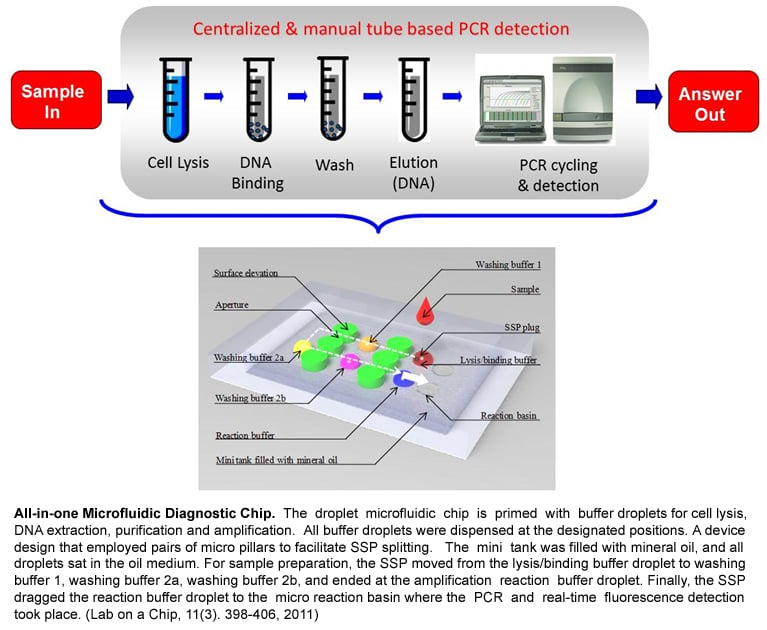Our lab focuses on the development of new technologies for molecular analysis and biomedical research via advances in micro- and nano-scale sciences. We aim to develop new methods, devices and systems with unprecedented performance characteristics, such as sensitivity, specificity, resolution (temporal and/or spatial), multiplexing and throughput to rectify current technological limitations in the molecular study of diseases. In addition, we are moving beyond basic research into translational studies by developing and applying new technologies that address practical biomedical problems and clinical needs. By forging long-term collaborations with medical scientists and physicians across various disciplines (e.g. Oncology, Pathology, Surgery and Emergency Medicine) and by leveraging our engineering innovations in microfluidics, single molecule spectroscopy and functional nanoparticles, we are developing genetic and epigenetic biomarker-based diagnostics for cancer and an array of other diseases.
 Quantum Dots for Genetic and Epigenetic Detection of Cancer
Quantum Dots for Genetic and Epigenetic Detection of Cancer
 Single Molecule Analysis of Genomic Content
Single Molecule Analysis of Genomic Content
 All-in-One Microfluidic Diagnostics: Sample Preparation, Target Detection and Integration
All-in-One Microfluidic Diagnostics: Sample Preparation, Target Detection and Integration
During the past decades great effort has been put into the development of miniaturized platforms for biological and chemical analyses. The advantages of these microfabricated devices include fast analysis, low sample and reagent consumption, low cost, high portability and disposability. Such miniaturization efforts have led to the development of microTAS capable of integrated sample preparation, biochemical reaction, and analyte detection through microfluidic manipulations. Conventional continuous flow microfluidic systems have made considerable progress towards integrating multiple tasks onto a single platform. However, most of these platforms are not amenable in point-of-care utilizations in part because they incorporate complicated microfluidic components such as microvalves, micropumps and interface connections. Moreover, conventional microfluidic bioanalytical platforms often require bulky and expensive peripheral accessories that are not practically portable.
In order to address point of care (POC) diagnostics, we developed a droplet microfluidic, sample-to-answer platform for the detection of disease biomarkers and infectious pathogens using crude biosamples. The platform exploited the dual functionality of silica superparamagnetic particles (SSP) for solid phase extraction of DNA and magnetic actuation. This enabled the integration of sample preparation and genetic analysis within discrete droplets, including the steps of cell lysis, DNA binding, washing, elution, amplification and detection. The microfluidic device was self contained, with all reagents stored in droplets, thereby eliminating the need for fluidic coupling to external reagent reservoirs. We validated our platform by successfully detecting Rsf-1 cancer biomarker from whole blood and identifying infectious pathogens from crude biosamples using real time PCR on the chip. See video for demonstration.

 Droplet Microfluidics for High-Resolution and High-Throughput Screening
Droplet Microfluidics for High-Resolution and High-Throughput Screening

